9+ SAMPLE Marketing Training Proposal
-
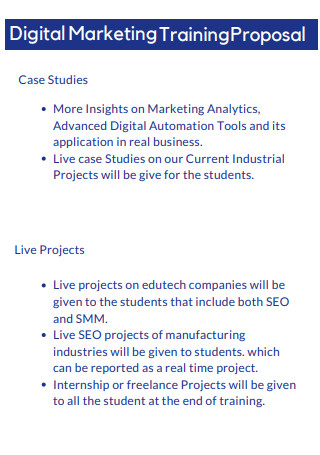
Digital Marketing Training Proposal
download now -
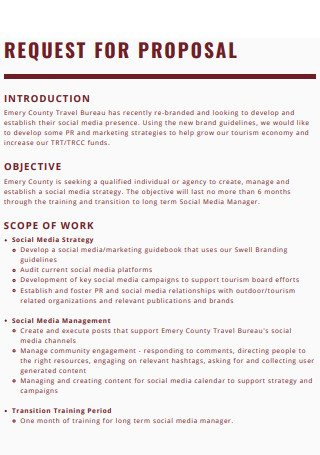
Social Media Marketing Training Proposal
download now -
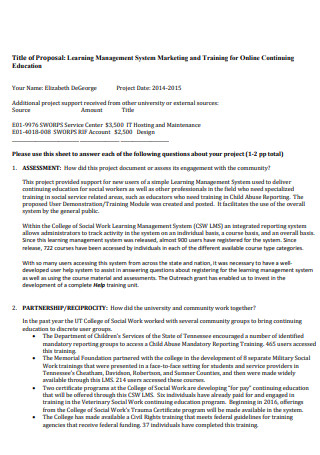
Online Marketing and Training Proposal
download now -
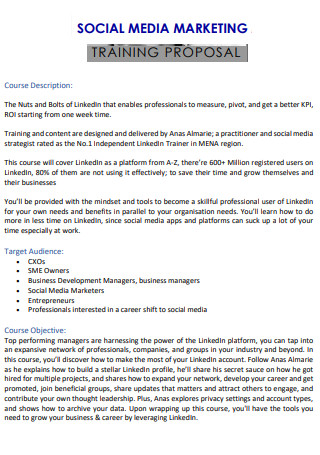
Sample Social Media Marketing Training Proposal
download now -
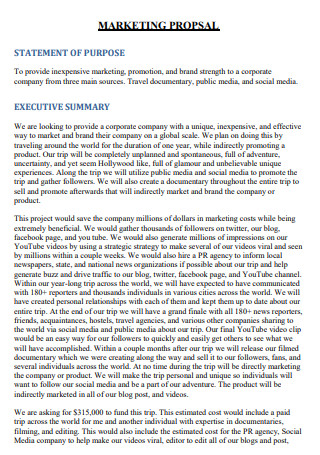
Sample Marketing Training Proposal
download now -
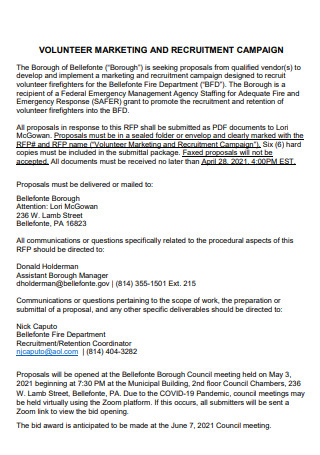
Volunteer Marketing Training Proposal
download now -
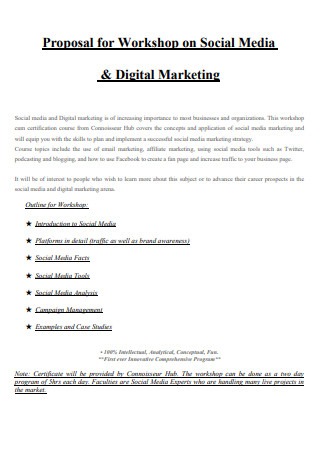
Proposal for Workshop on Marketing Training
download now -
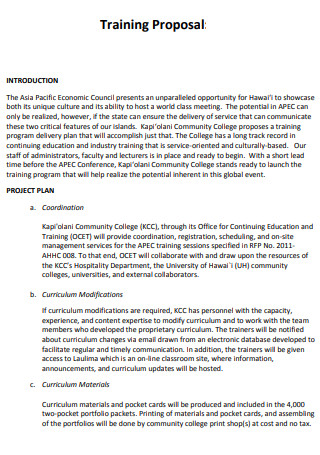
Simple Marketing Training Proposal
download now -
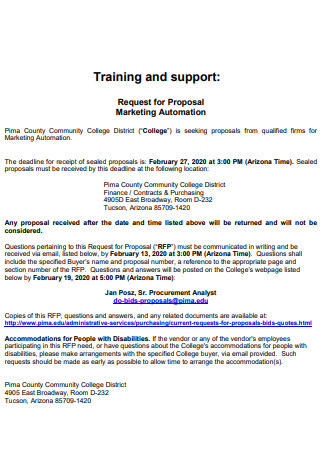
Marketing Automation Training Proposal
download now -
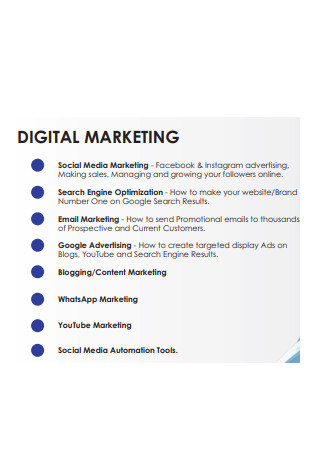
Digital Marketing Training Proposal Example
download now
FREE Marketing Training Proposal s to Download
9+ SAMPLE Marketing Training Proposal
a Marketing Training?
Benefits of Marketing
Types of Marketing Specializations
How To Market A Training Course For Employees
FAQs
What is marketing training?
Is marketing a specialized skill?
What is the function of a marketing trainer?
What Is a Marketing Training?
It is critical to comprehend what marketing training is. It is just the act of communicating to employees and management the benefits of your training program. This can be accomplished easily through discussion and the dissemination of available resources. Leaders constantly strive to improve their businesses, define their objectives, and evaluate their existing performance. You might as well consider developing some abilities, such as goal setting, leadership development, change management, and other similar areas. According to statistics, marketing positions grew by 63% in the first six months of 2021.
Benefits of Marketing
Marketing is a method used by businesses to promote their products or services. Every corporate entity should understand and be able to implement such a strategy. Several business sectors have used marketing strategies. They even hire marketing professionals to assist them in selling their items. On that note, what role does marketing play in business?
Types of Marketing Specializations
Marketing is a complicated field that needs a great deal of mastery—the following marketing specialties cover everything from research to strategy to tactical implementation. Continue reading for a straightforward overview of eleven typical marketing specialties.
-
1. Market research
How can you determine whether a product, service, or message will be memorable to a specific audience? You conduct your research. Market researchers use various techniques to pick the public’s brains and acquire information. Another critical aspect of market research is the interpretation of the findings. The most skilled market researchers can modify their queries to get more meaningful responses. For instance, asking “What do you like about this product?” may get a very different answer than asking, “What do you enjoy about this product as a parent?”
2. Content marketing
Have you ever read the recipe on the back of a cereal box? Have you ever noticed how the ingredients list always appears to include brand-name products manufactured by the same company? That is, in fact, an early example of content marketing. Content marketing aims to create content—basically any consumable piece of information—that serves a function other than simply promoting a product. Consider it as advertising by providing something of value to the consumer. Content marketing can help develop a good feeling for the brand by associating a business with something helpful or interesting. When done correctly, consumers will be unaware they are being sold to—or will tolerate it more than they would a pop-up ad or commercial.
3. Search engine marketing
Some in the industry refer to search engine marketing (SEM) as a catch-all word encompassing organic search engine optimization (SEO) and paid search advertising operations. For the sake of this article, we’re using the more restrictive term that pertains exclusively to paid search marketing. This marketing method entails presenting adverts to users of search engines such as Google® or Bing®. Advertisers bid on prominent search words relevant to the businesses they represent—for example, an appliance wholesaler bidding on the phrase “microwaves for sale.” While it may appear straightforward, optimizing a paid search campaign requires considerable effort. Search engine marketers must be analytical, strategic, and eager to experiment and tweak their advertising methods to flourish in this profession.
4. Video marketing
Video marketing can be thought of as a subset of content marketing, but in all its forms, it uses film. Every day, Internet users watch a massive amount of video material, and video marketers compete for a piece of that pie. Numerous parts of video marketing are comparable to content marketing—definition of goals, selection of channels and target audiences, and strategy development. However, video requires a unique set of awareness and talents, necessitating marketers who understand the approach from the ground up. Live videos surrounding an event or product launch, behind-the-scenes footage to increase brand awareness, instructive videos—the list goes on and on.
5. Direct marketing
Described, direct marketing is distributing promotional materials to consumers directly. While you may not always enjoy these commercials as a consumer, direct marketing has been a proven method for years for businesses to enhance sales and overall exposure. As you might guess, standing out from the clutter of other direct marketing materials delivered to consumers regularly requires a great deal of innovation. However, creativity will only carry you so far. Numerous direct marketers have found success by embracing the personalization of marketing materials as firms explore multi-channel marketing strategies.
6. Social media marketing
Social media marketing aims to increase traffic to a business’s website while increasing brand awareness and client loyalty. Marketers accomplish this using several strategies on various social media platforms, ranging from Facebook to Snapchat and everything in between. Also, social media enables brands and enterprises to engage with their customers more personalized manner. These interactions can significantly impact how a brand is regarded, which is why social media marketers must be extremely cautious about how their messaging may be understood. The possibility of enormous success or catastrophic calamity is genuine, which is why caution is necessary.
7. Influencer marketing
Like social media marketing, influencer marketing leverages consumer engagement across many social media platforms—but rather than creating a company account, marketers collaborate with influencers to spread the word about their brand. This method can be highly effective because it is based on social proof and capitalizes on followers’ pre-existing confidence in the individuals they follow. Influencer marketing is viral on Instagram and YouTube. There are other elements to consider, including selecting the appropriate influencers for your brand, establishing brand messaging, collaborating with the influencer, and determining value.
How To Market A Training Course For Employees
Today, the most critical human resource function is training and development, all the more so because technology is evolving at a pace, and employees must stay current on industry trends. Regrettably, many employees are frequently unmotivated and disinterested in their training sessions. This can result in decreased participation and substandard performance. So how can you increase employee awareness of available learning opportunities and motivate them to use them? The following are some helpful marketing suggestions for your staff training session.
-
1. Create A Group On Social Media
Social media groups are an innovative marketing tactic that can help you keep your employees informed. For example, a closed Facebook group is a fantastic way to share online training suggestions, event invitations, and notifications about online training courses. Additionally, employees can discuss forthcoming events related to online training and share resource links. However, ensure that you establish netiquette guidelines to prevent disagreements and keep users on topic. Also, choose social media sites that your workforce is familiar with to increase participation. You can utilize polls and surveys to determine which websites are popular, allowing you to tailor your marketing approach.
2. Organize A Firmwide Webinar
Webinars are interactive and engaging. Your employees will have the opportunity to exchange ideas and ask questions, while online developers and instructors will update the organization on planned eLearning courses and events. Divide the personnel into small groups and offer many webinars to create a personalized setting. This provides an opportunity for everyone to express themselves on a more private platform. To achieve the significant results, provide ample information to personnel before the eLearning event. Please provide them with the benefits, online conversation topics, and a broad outline to aid them in pre-planning their questions.
3. Create Your eLearning Newsletter
Create a regular corporate newsletter that includes information about the online training course, such as tips, updates, and tricks. Each episode will focus on a different online training program or topic. For example, one newsletter could be devoted entirely to safety and health compliance. It may include mandatory chores, the benefits of online compliance training, and a frequently asked question. Attract your staff’s attention with an engaging headline and a synopsis of the topics discussed. Include images, rich colors, and multimedia links to make the newsletter more interesting. Additionally, you can use a template to save time and ensure that each edition is consistent with your brand.
4. Create An eLearning Corporate Blog
Promote your training program by routinely posting blog updates, prompts, and questions. Additionally, you may use your eLearning blog to provide your team with educational resources, guidance, and tools. There are numerous free blogging platforms that offer eLearning themes, templates, and built-in programs. If you want your corporate eLearning blog to succeed, you must provide consistency and genuine value to your viewers. Additionally, post thought-provoking questions to encourage employee engagement and conversation among peers.
5. Provide A Sneak Peek To The Staff
Employees crave exclusivity, especially in the realm of corporate eLearning. Offering a handful of them the opportunity to view an online training module or activity before its launch can help you market your eLearning course. Then invite them to participate in a questionnaire or survey. Your employees will have the opportunity to preview the eLearning training materials, and your business will receive critical feedback. To achieve the best outcomes, recruit a varied group of personnel to test the eLearning content. Organize a focus group to evaluate the online training program’s merits and faults if you want highly comprehensive feedback.
6. Forum on Corporate eLearning
Not only are online forums ideal for social learning, but they may also help you sell your eLearning course. This can be accomplished by inciting intense online debates and conversations centered on online training. For example, post prompts, solicit feedback, and allow workers to share ideas. Create an environment where employees feel comfortable interacting and expressing their opinions. Additionally, you can ask industry professionals to host sessions on the forum as guest hosts. For instance, the human resources manager could hold a question-and-answer session about corporate policy and compliance issues.
7. Welcome Feedback
The staff desires to be heard, but more importantly, they desire to know that their ideas and views are valued. As a result, employee feedback must be transformed into measurable targets. Feedback on a business training program provides a unique opportunity to empathize with participants and objectively identify areas for improvement. Solicit staff participation in social media polls, surveys, and focus groups. Accepting their input contributes to increased engagement and motivation, which promotes the success of your training program.
FAQs
What is marketing training?
A marketing training plan outlines your marketing training requirements and how you intend to address them. The strategy enables you to maximize your marketing training budget by equipping staff with the marketing knowledge and skills necessary to improve business success.
Is marketing a specialized skill?
To ensure your business’s success, you must fund in marketing abilities. For a straightforward reason: marketing increases awareness of your products and converts buyers. With that said, investing in marketing talents is more than simply purchasing marketing tools and hoping for the best.
What is the function of a marketing trainer?
A small company marketing coach specializes in assisting small firms in building a marketing strategy and plans. A significant portion of their work is to learn everything there is to know about the firm and to make a marketing strategy that will assist them in accomplishing their objectives.
How to write an effective proposal for marketing training? It would help if you had a clear purpose to dictate the most effective training method. Besides, you can improve the efficacy of your marketing training by just identifying your employees’ training needs. Each training plan should also describe how the marketing training will be evaluated about the specified objectives. If you’d like to view other samples and formats, you can refer to some of the marketing training proposal samples and templates offered in the post.
